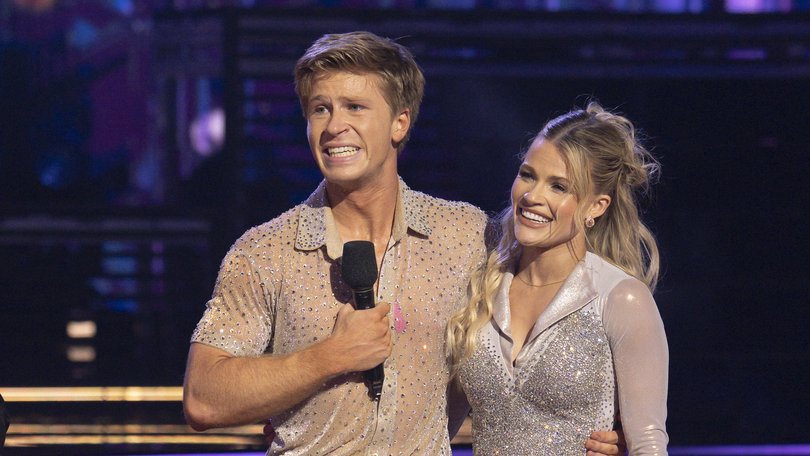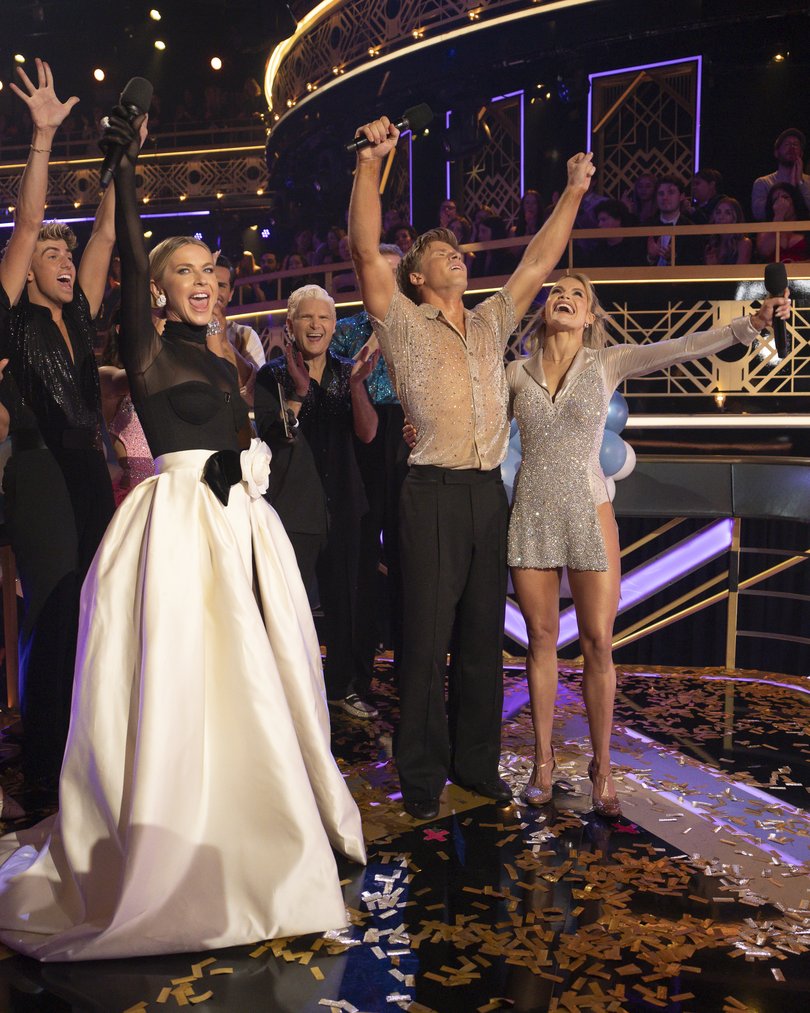Dancing With The Stars winner 2025: Why Americans can’t get enough of champion Robert Irwin right now
WENLEI MA: He’s only 21 years old but Robert Irwin could make a convincing case for being the most beloved Australian in the US right now.

He’s only 21 years old but Robert Irwin could make a convincing case for being the most beloved Australian in the US right now.
The son of Steve Irwin, just like his father before him, has won over a legion of Yanks with his big smile, earnestness and charisma. He’s also just won the American version of Dancing with the Stars, crowned the victor in a finale just broadcast stateside.
Irwin had a rib injury, but it didn’t stop him from trotting, spinning, kicking and salsa-ing to two perfect scores and a nine out of 10. A decade earlier, he grasped sister Bindi’s DWTS trophy, now he has his own.
Sign up to The Nightly's newsletters.
Get the first look at the digital newspaper, curated daily stories and breaking headlines delivered to your inbox.
By continuing you agree to our Terms and Privacy Policy.Dance skills are one thing, but the show is also a popularity contest with tens of millions of public votes (a record-breaking 55.9 million cast in the week of November 11, according to the Los Angeles Times).
The American broadcast ratings have also been on the upswing, the highest in years and rising every week, even among younger viewers. Irwin is undoubtedly part of that renewal with social media fuelling the interest in the live show, activated by his millions of followers online.

What is it about Irwin that has hit the sweet spot among Americans of all ages and stripes?
There is, of course, the latent love for Steve that has transferred to the Crocodile Hunter’s youngest child, who was not yet three years old when his father died in that shock encounter with a stingray in 2006.
An early tragedy often puts people on your side, especially when you “come good” and succeed despite the trauma of losing a parent so publicly.
While Steve won American fans with his larrikin spirit and derring-do, the younger Irwin, who looks like his father, but is more conventionally attractive, is surfing a slightly different wave.
There is, right now, an appetite for a softer version of masculinity than that of his father’s and grandfather’s generations.
After years of labouring over what form of masculinity we find acceptable, there seems to be a consensus, at least in a swathe of the internet and mainstream culture, that has settled on something which combines elements of sensitive new age guy and unapologetically male.
Just look at the latest Vanity Fair Hollywood issue, which grouped together a class of actors who have at various points been dubbed an “internet boyfriend”. The likes of Glenn Powell, Callum Turner, Paul Mescal, Michael B. Jordan, Riz Ahmed, Austin Butler, Jonathan Bailey, and more, give the impression they would treat their mothers well.
It’s confidence without aggression, it’s considerateness without navel-gazing, it’s earnestness without self-seriousness, it’s strength that comes from vulnerability, and it’s someone who looks like they would still be fun at a party.
Irwin embodies that matrix.
His public persona is easygoing, hard-working, caring and with a sense of humour. He’s also not afraid to lean into his sex appeal and appeared to happily flaunt his rig with torso-bearing costumes that might make his older fans feel a bit uneasy about themselves.
He — and those Vanity Fair boys — are anathema to the toxic manosphere whose rise is repulsive to anyone with half an empathy drive. When chaos and division reign, someone like Irwin gives hope that the boys are all right, that there is kindness in the world.
DWTS judge Derek Hough, who was Bindi’s dance partner during her stint on the show, called Irwin “this generation’s beacon of hope”.
Americans want someone to believe in. If that happens to be an Australian (who happens to be half-American through his mother Terri), it’s probably even easier because he is at least one step removed from the US’s malignant political atmosphere.
Plus, since Crocodile Dundee, Americans have had a fascination with Australians. Rightly or wrongly, they see us as almost-otherworldly people who spend the day at the beach surfing, able to handle any challenge and just being generally good-natured.
It can be a reductive impression that denies the far more complex web of Australian identity and history, but it’s certainly an attractive package for tourism and soft power purposes. If you’ve opened your mouth in the US, you’ve had someone coo over your accent — or ask if you’re British.
Irwin doesn’t challenge pre-conceptions of what an Australian is to an American in a similar way to how Chris Hemsworth doesn’t either. He’s easy to position, and by all accounts, he seems to be a genuinely nice guy without the stink of whispers or rumours about another side.
There are plenty of famous Australians who serve as official and unofficial cultural ambassadors, and it’s often said that Australia punches above its weight. In America, they want to root for us, and if that person is Irwin, that’s good for the whole country.
What Irwin represents and the causes he champions including conservation, animal rights, the LGBTQIA community and women’s health issues is the kind of modern masculinity we can all get behind.
He’s also insanely charismatic, able to win over anyone in his presence, charming even seasoned talk show hosts.
As his mother Terri told The New York Times, “he’s kind of what Tom Cruise aspires to be”.

